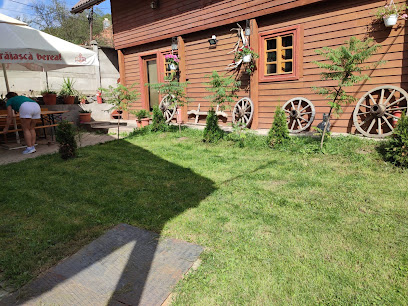
Explore the Ancient Marvels of Potaissa Roman Fort
Discover the ancient Potaissa Roman Fort in Turda, Romania - a monumental archaeological site showcasing Roman history and stunning landscapes.
Potaissa Roman Fort, a UNESCO World Heritage site, invites tourists to walk through its ancient ruins, experiencing the rich history of the Roman Empire in Turda, Romania. This archaeological site showcases impressive remnants of Roman architecture, providing a glimpse into life during the Roman occupation. Visitors can explore the fortifications, towers, and remnants of the ancient city, all set against the beautiful backdrop of Transylvania's landscapes.
A brief summary to Potaissa Roman Fort
- Strada Castrului Roman, Turda, RO
- +40755544122
- Monday 12 am-12 am
- Tuesday 12 am-12 am
- Wednesday 12 am-12 am
- Thursday 12 am-12 am
- Friday 12 am-12 am
- Saturday 12 am-12 am
- Sunday 12 am-12 am
Local tips
- Visit early in the morning or late afternoon to avoid crowds and enjoy the site in peace.
- Wear comfortable footwear as the site involves walking on uneven terrain.
- Bring a camera to capture the stunning views and ancient ruins.
- Consider hiring a local guide to enrich your understanding of the site's history.
- Combine your visit with a trip to the nearby Turda Salt Mine for a full day of exploration.
Getting There
-
Car
If you are driving from Cluj-Napoca, head east on the E576 road. Continue straight for approximately 30 km until you reach Turda. Once in Turda, follow the signs for the Roman Fort. Turn onto Strada Castrului Roman, and you will find the entrance to the Potaissa Roman Fort on your left. Make sure to pay for parking if required, as fees may apply.
-
Public Transportation
From Cluj-Napoca, take a train from the Cluj-Napoca train station to Turda. The journey takes about 30 minutes. Upon arrival at Turda train station, take bus number 11 towards 'Centrul Civic'. Get off at the 'Castrului Roman' stop, which is near the fort. The entrance is a short walk from the bus stop. Be sure to check the bus schedule in advance as services may vary.
-
Walking
If you are already in Turda, you can reach the Potaissa Roman Fort on foot. From the city center, walk towards Strada Castrului Roman. The fort is approximately a 15-minute walk from the central squares. Follow the signs for the fort, and enjoy the local scenery along the way.
Discover more about Potaissa Roman Fort
Iconic landmarks you can’t miss
Pensiunea Cluj
24.7 km
Experience the charm of Cluj-Napoca at Pensiunea Cluj, a cozy bed & breakfast offering local delicacies and warm hospitality.

Casa Învăţătorului
25.7 km
Experience the rich history and stunning architecture of Casa Învațătului, a must-visit landmark in Cluj-Napoca, Romania.
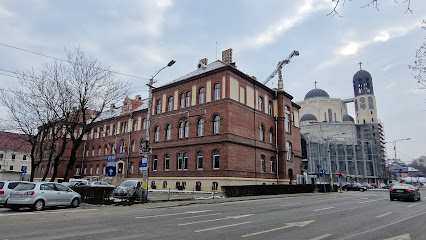
Reformed Church
25.7 km
Explore the stunning Reformed Church in Cluj-Napoca, a gothic architectural gem rich in history, art, and community spirit.
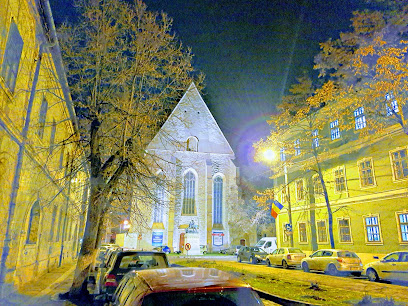
Zidurile Cetății
25.8 km
Explore the historic Zidurile Cetății in Cluj-Napoca, a stunning landmark showcasing the city’s rich medieval heritage and breathtaking architecture.
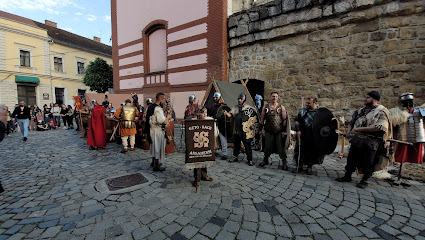
Tower House
25.9 km
Explore the historical allure of Tower House in Cluj-Napoca, a stunning landmark reflecting Romania's rich architectural heritage.
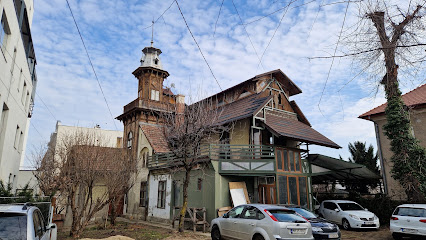
Sándor Reményik Plaque
25.9 km
Explore the rich musical heritage of Cluj-Napoca at the Sándor Reményi Plaque, a historical landmark honoring a legendary violinist.
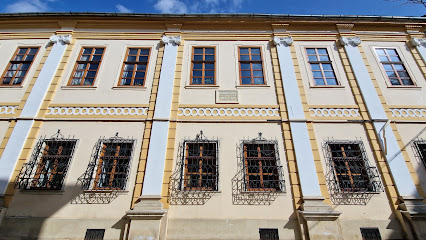
Obeliscul Maria
25.9 km
Explore the Obeliscul Maria in Cluj-Napoca, an iconic historical landmark that embodies the spirit of Romania's rich cultural heritage and history.
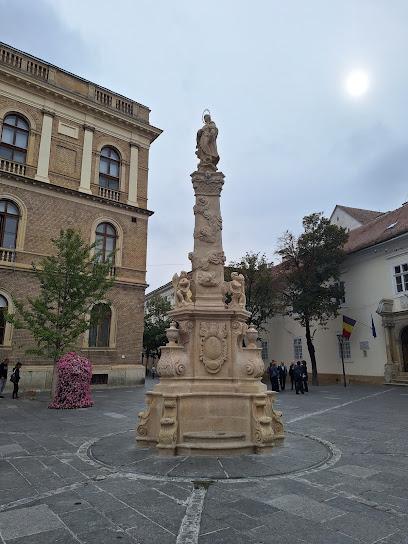
The Goldsmith's House
25.9 km
Discover the rich history and stunning architecture of The Goldsmith's House, a must-visit historical landmark in Cluj-Napoca.
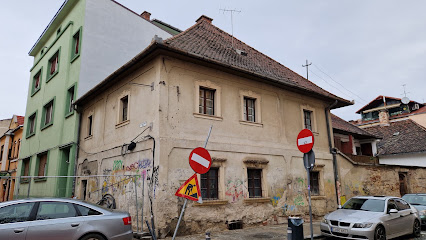
Hoia Baciu Project
26.0 km
Discover the mystical Hoia Baciu Forest, a unique blend of nature and legends that promises an unforgettable adventure in Romania.
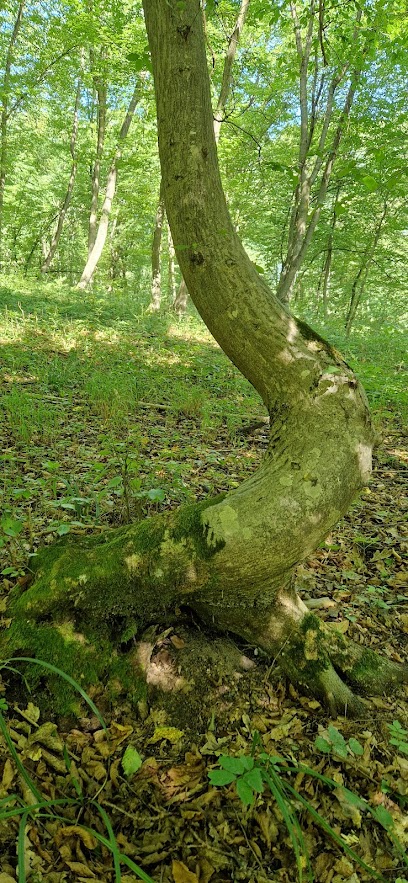
The Statue of Avram Iancu
26.0 km
Explore the Statue of Avram Iancu in Cluj-Napoca, a historic symbol of Romania's fight for freedom, surrounded by vibrant culture and stunning architecture.
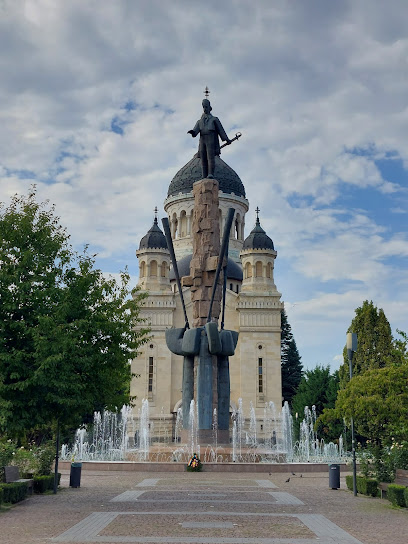
Statue of Avram Iancu
26.0 km
Explore the Statue of Avram Iancu in Cluj-Napoca, a stunning monument symbolizing Romanian national pride and heritage.
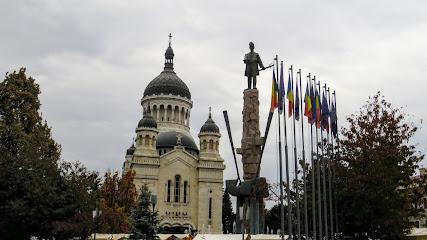
Romania
26.0 km
Explore Romania, a captivating blend of history, culture, and natural beauty in Eastern Europe, perfect for adventurous travelers.
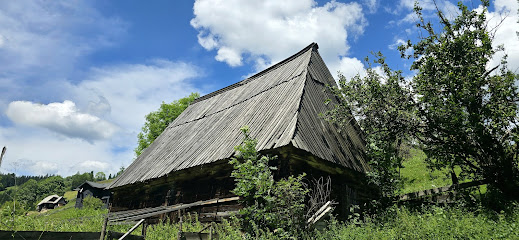
Students' Cultural House
26.0 km
Discover the vibrant cultural scene at the Students' Cultural House in Cluj-Napoca, a hub for artistic expression and community gatherings.
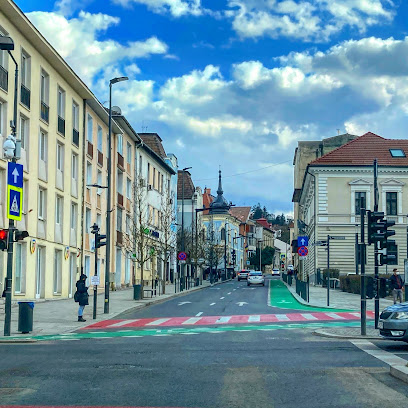
Lupa Capitolina
26.0 km
Explore the captivating Lupa Capitolina in Cluj-Napoca, a stunning sculpture that symbolizes the rich cultural ties between Romania and ancient Rome.
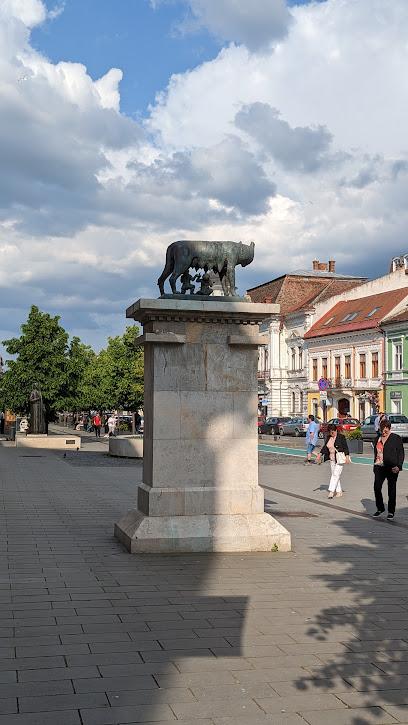
Premier Theater Memorial Plaque
26.0 km
Explore Cluj-Napoca's artistic heritage at the Premier Theater Memorial Plaque, a historical landmark celebrating the city's vibrant performing arts history.
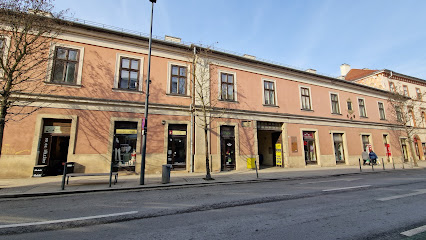
Unmissable attractions to see
Muzeul de Istorie din Turda
1.0 km
Explore the fascinating history of Turda at Muzeul de Istorie, featuring captivating exhibits and stories from the past.
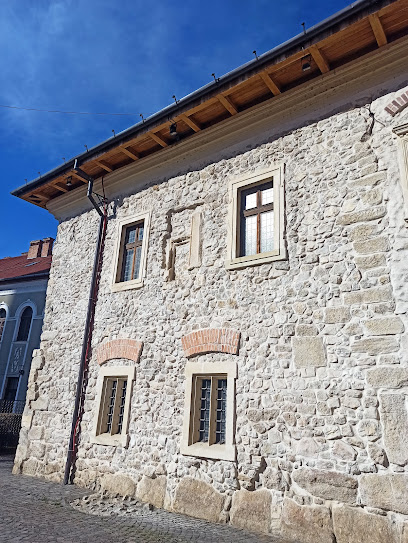
Adventure Motorcycle Tours & Rentals Romania, Europe, Africa
1.0 km
Discover the thrill of Romania's breathtaking landscapes with Adventure Motorcycle Tours & Rentals, catering to all adventurers in the heart of Transylvania.
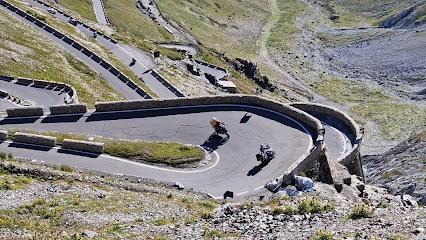
Salina Turda
2.2 km
Explore Salina Turda, a breathtaking underground salt mine turned tourist attraction, blending history, adventure, and unique recreational activities.
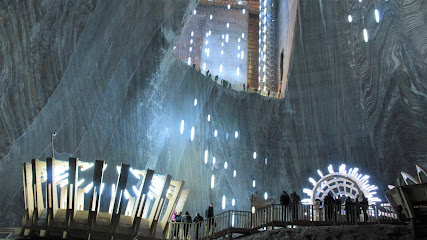
Cheile Turzii
7.0 km
Explore the breathtaking landscapes and rich biodiversity of Cheile Turzii, a premier national reserve and tourist attraction in Romania.
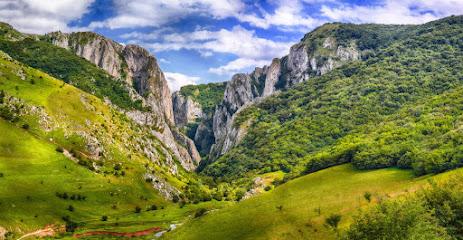
Piatra Secuiului
19.7 km
Experience the breathtaking beauty of Piatra Secuiului, a stunning limestone formation in Transylvania, perfect for hiking and cultural exploration.
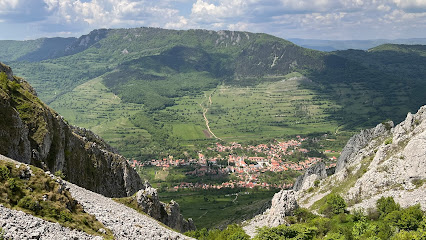
Wind Mill
19.8 km
Explore Wind Mill Zoo, a family-friendly attraction featuring diverse wildlife, immersive exhibits, and engaging educational programs in Romania.
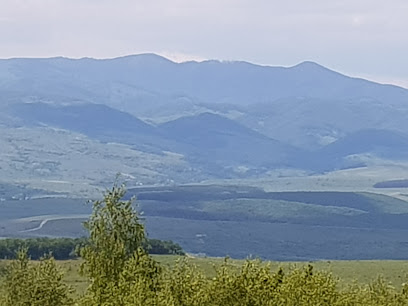
Panoramic Springs
20.7 km
Explore the serene beauty of Panoramic Springs in Cluj-Napoca, a breathtaking tourist attraction perfect for nature lovers and peaceful retreat seekers.
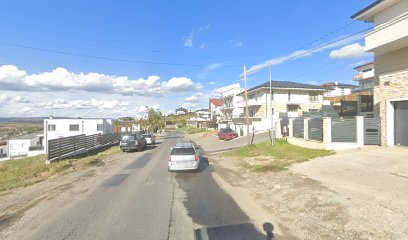
Grota Studentilor
20.8 km
Explore the breathtaking Grota Studentilor, a stunning cave attraction in Romania filled with nature's wonders and geological marvels.
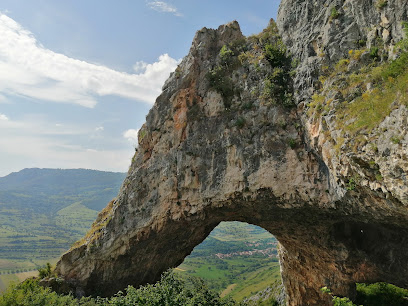
Castelul Teleki
21.1 km
Explore Castelul Teleki, a historical castle in Uioara de Sus, where captivating architecture and rich heritage await every visitor.
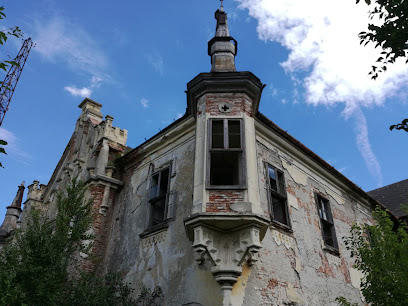
Gateway from under Feleac
21.9 km
Discover the enchanting Gateway from Under Feleac in Cluj-Napoca, where nature meets history in a captivating blend of cultural heritage.
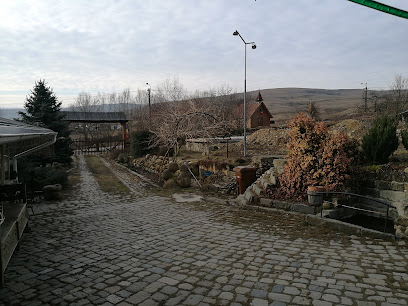
Trascău Fortress
23.8 km
Explore the Trascau Fortress, a historical marvel in Romania offering stunning views, rich history, and scenic hiking trails for all adventurers.
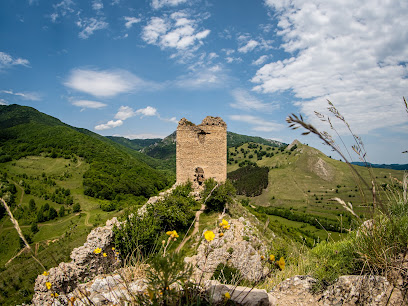
Detunata Park
24.3 km
Explore Detunata Park in Cluj-Napoca, a tranquil escape filled with lush greenery, diverse wildlife, and serene walking paths perfect for relaxation.
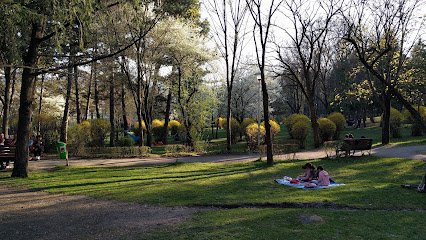
Parc Iulius Mall
25.1 km
Experience the perfect blend of shopping, dining, and nature at Parc Iulius Mall in Cluj-Napoca, a must-visit destination for every traveler.
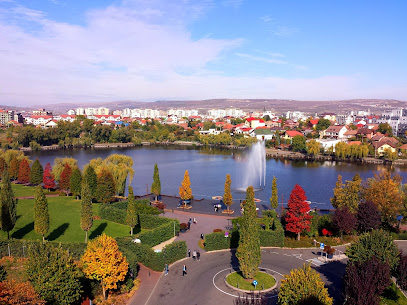
Observatorul Astronomic
25.2 km
Explore the wonders of the universe at Cluj-Napoca's Observatorul Astronomic, a premier destination for stargazers and science lovers.
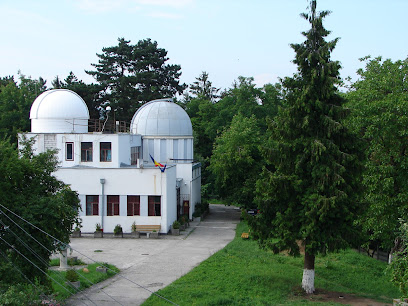
The Botanical Garden Water Tower
25.4 km
Explore the stunning Botanical Garden Water Tower in Cluj-Napoca, a serene oasis featuring breathtaking views and lush landscapes perfect for nature lovers.
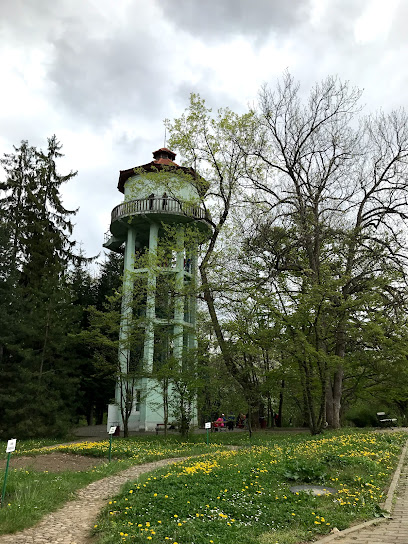
Essential places to dine
Restaurant Coquette
22.1 km
Experience the exquisite flavors of Romania at Restaurant Coquette in Cluj-Napoca - where culinary artistry meets local tradition.
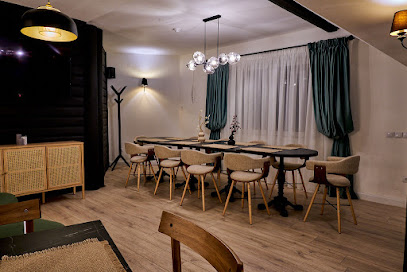
Da Vinci
23.6 km
Discover Da Vinci in Cluj-Napoca: where authentic Italian cuisine meets elegant dining in a charming atmosphere.
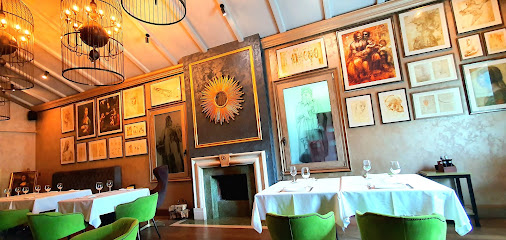
Restaurant Rod
24.2 km
Experience the culinary artistry of Restaurant Rod in Cluj-Napoca, where traditional Romanian flavors meet modern cuisine in an inviting atmosphere.
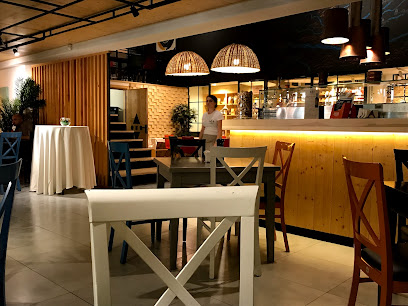
Hora
24.7 km
Discover authentic Romanian flavors at Restaurant Hora in Cluj-Napoca – where tradition meets modern culinary art.
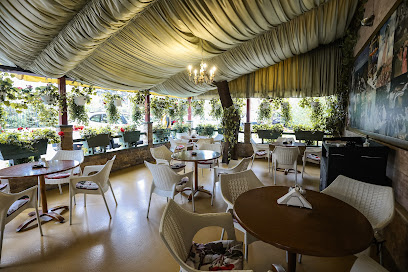
NAZ Restaurant
24.7 km
Experience the fusion of traditional Romanian flavors and modern cuisine at NAZ Restaurant in Cluj-Napoca.
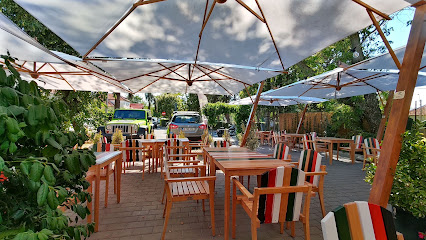
Dacian House Restaurant
24.8 km
Discover authentic Romanian cuisine at Dacian House Restaurant in Cluj-Napoca - where tradition meets flavor.
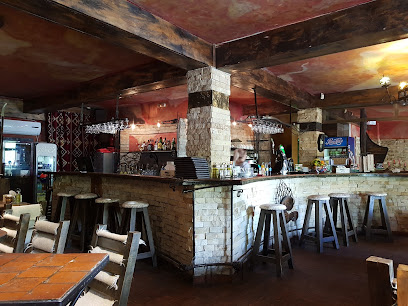
Marhaba
24.8 km
Discover authentic Middle Eastern flavors at Marhaba, Cluj-Napoca's premier destination for delicious Mediterranean dining.
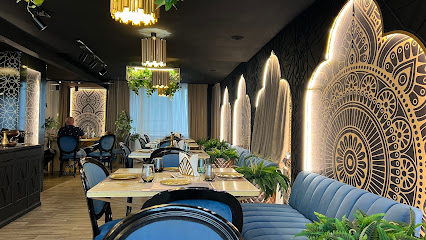
London Brothers Cluj
25.0 km
Experience culinary excellence at London Brothers Cluj - where local flavors meet international cuisine in a warm atmosphere.
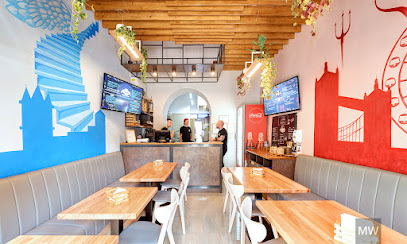
Taverna Racilor Cluj
25.0 km
Discover Taverna Racilor in Cluj-Napoca for an authentic seafood experience with fresh flavors that celebrate coastal traditions.
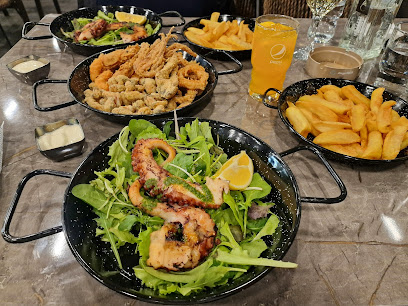
C'est La Vie - Rooftop Restaurant
25.1 km
Discover C'est La Vie Rooftop Restaurant in Cluj-Napoca: A culinary oasis offering breathtaking views and exquisite gourmet dishes.
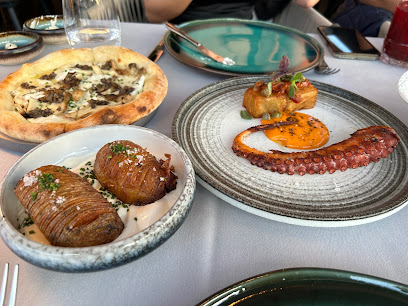
MEATinc. Cluj-Napoca
25.5 km
Experience the best of Romanian and international meats at MEATinc., Cluj-Napoca's premier destination for meat lovers.
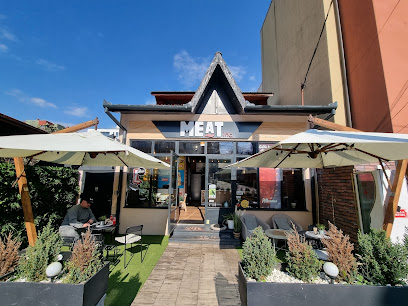
Tokyo Japanese Restaurant
25.7 km
Experience authentic Japanese cuisine at Tokyo Japanese Restaurant in Cluj-Napoca - where tradition meets taste.
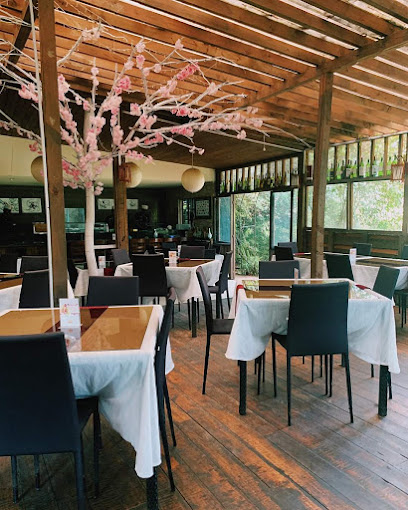
Marhaba Asian Restaurant
25.8 km
Discover authentic Asian cuisine at Marhaba Asian Restaurant in Cluj-Napoca - where flavor meets culture in every dish.
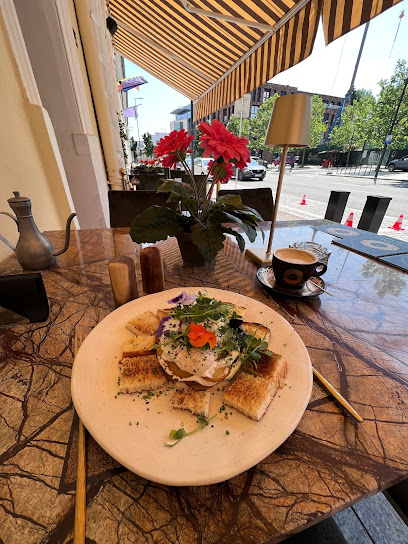
Pasta Nostra
25.9 km
Experience the authentic taste of Italy at Pasta Nostra in Cluj-Napoca with handmade pasta and traditional recipes.
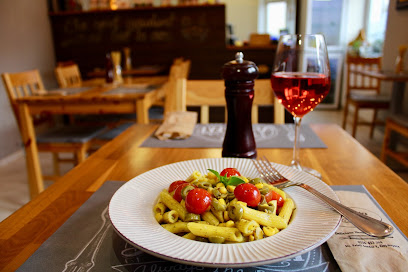
Da Pino
25.9 km
Experience culinary excellence at Da Pino in Cluj-Napoca – where tradition meets innovation in every dish.
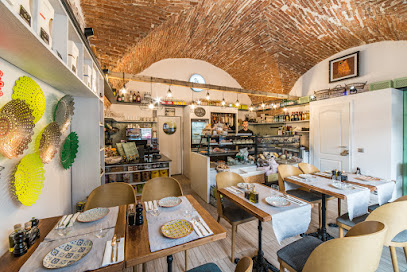
Markets, malls and hidden boutiques
GENTLEMEN’s BOUTIQUE - Costume pentru Barbati - Cluj Napoca
24.2 km
Discover the elegance of men's fashion at GENTLEMEN’s BOUTIQUE in Cluj-Napoca, where style meets sophistication for every occasion.
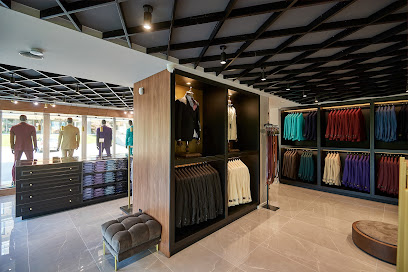
JYSK
24.6 km
Explore JYSK in Cluj-Napoca for stylish, affordable furniture and home decor, blending Scandinavian design with quality craftsmanship.
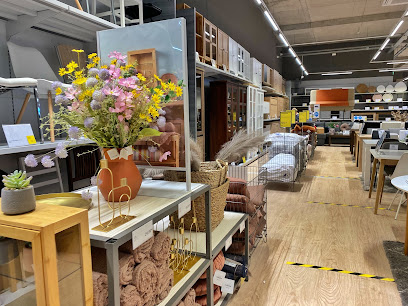
Sigma Shopping Center
24.7 km
Explore Sigma Shopping Center: Cluj-Napoca's vibrant shopping mall, featuring diverse shops, dining, and entertainment for an unforgettable retail experience.

Nissa
24.9 km
Explore Nissa in Cluj-Napoca for the latest women's fashion, including dresses, shoes, accessories, and more, all at great prices.

Kitchen Shop
24.9 km
Explore the Kitchen Shop in Cluj-Napoca for a wide selection of quality kitchen supplies and unique culinary tools.
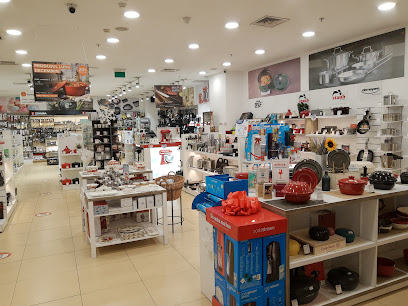
Divertis Shop
24.9 km
Explore Divertis Shop in Cluj-Napoca for unique gifts and custom t-shirts that celebrate Romanian culture and creativity.

El Unico
24.9 km
Explore El Unico in Cluj-Napoca for unique gifts, local delicacies, and event tickets, all in one vibrant shopping destination.
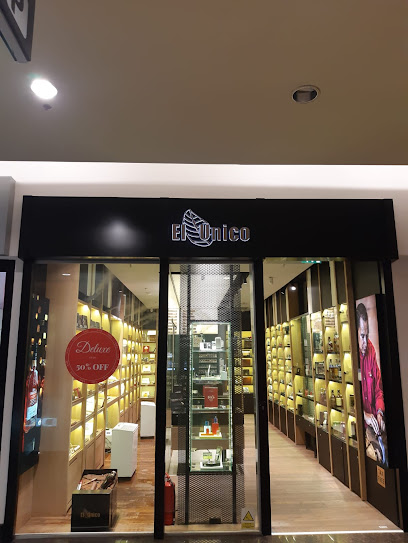
iSTYLE Apple Authorised Reseller - Iulius Mall Cluj
24.9 km
Explore cutting-edge technology at iSTYLE Apple Authorised Reseller in Iulius Mall Cluj, where innovation meets expert advice and a vibrant shopping experience.
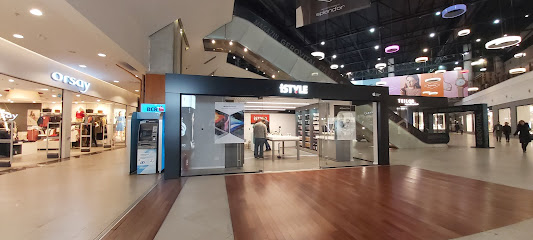
The North Face Iulius Mall
24.9 km
Discover top-quality outdoor gear at The North Face Iulius Mall, your go-to destination for adventure apparel in Cluj-Napoca.
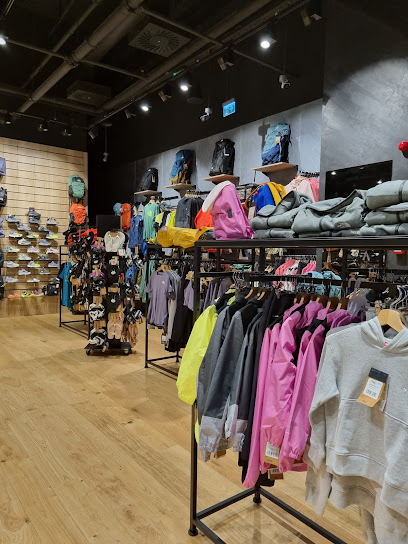
Tommy Hilfiger Cluj
24.9 km
Explore the latest in American fashion at Tommy Hilfiger Cluj, where style meets sophistication in Cluj-Napoca.

Nike Store
24.9 km
Discover the ultimate destination for sportswear and footwear at Nike Store Cluj, where style meets performance in a vibrant shopping atmosphere.

Noriel
24.9 km
Explore Noriel, Cluj-Napoca's top toy store, offering an extensive selection of toys and games for children of all ages in a fun and inviting atmosphere.

U Man
24.9 km
Explore U Man, Cluj-Napoca's premier skate shop offering stylish gear and a vibrant community for skate enthusiasts and fashion lovers.
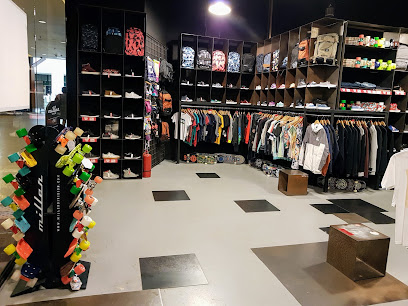
Bucuria Cadou
24.9 km
Explore Bucuria Cadou in Cluj-Napoca for exquisite gift baskets filled with local delicacies and unique artisanal products perfect for any occasion.

Massimo Dutti
25.0 km
Explore contemporary elegance at Massimo Dutti in Cluj-Napoca, where fashion meets sophistication in every stylish piece.
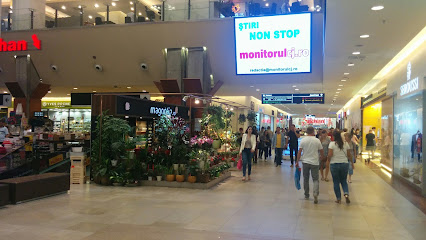
Essential bars & hidden hideouts
Hunter Prince Castle & Dracula
1.2 km
Discover the allure of Hunter Prince Castle & Dracula, a unique culinary gem steeped in history and legend in Turda, Romania.
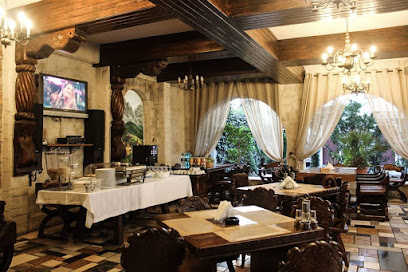
Panoramic View Cheile Turzii
5.8 km
Discover the stunning cliffs and panoramic views of Cheile Turzii, a nature lover's paradise in Romania, perfect for hiking and adventure.
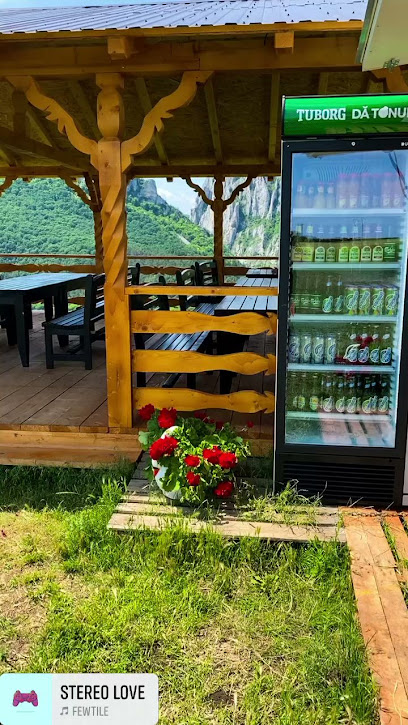
Ady Caffe Iara
19.4 km
Experience the warm ambiance and delightful beverages at Ady Caffe Iara in Tăuții-Măgherăuș, the perfect bar for tourists to unwind.
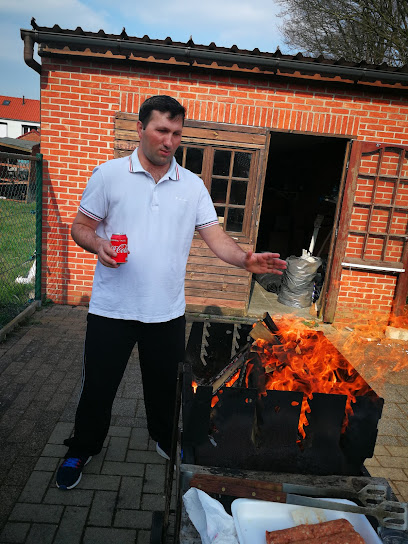
Gondűző
20.4 km
Explore Gondűző in Rimetea for a cozy bar experience with local drinks, stunning views, and a welcoming atmosphere at budget-friendly prices.
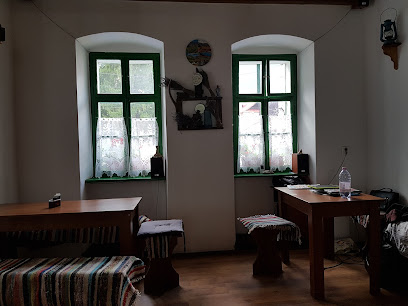
Forrás Borozó
20.5 km
Discover the charm of Forrás Borozó, a cozy wine bar in Rimetea offering exquisite local wines and a taste of Romanian culture.
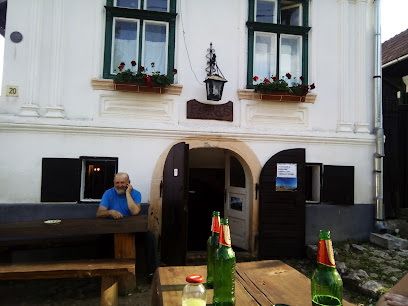
Hardward Pub
24.8 km
Experience the lively atmosphere of Hardward Pub in Cluj-Napoca, where great drinks, live music, and local culture come together.
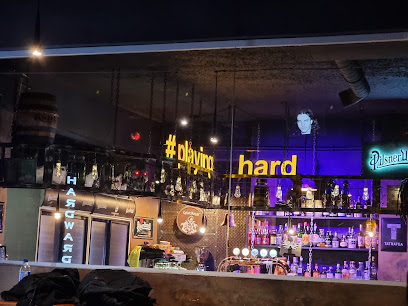
Joben Experience Bar
25.7 km
Discover the vibrant atmosphere and unique menu at Joben Experience Bar, a top cocktail bar and bistro in Cluj-Napoca, Romania.
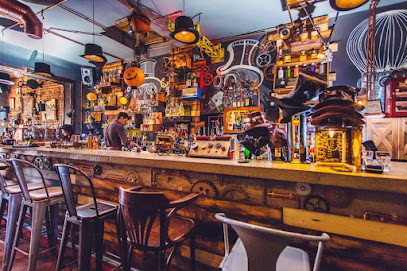
La Țevi
25.9 km
Discover La Țevi, a vibrant pub in Cluj-Napoca offering local drinks, live music, and a lively atmosphere for tourists seeking an authentic experience.
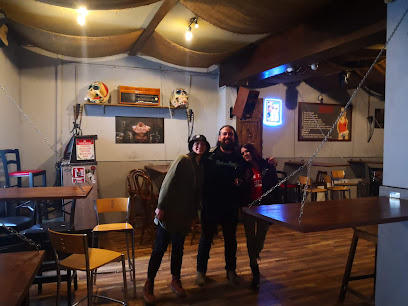
The Brewhouse
25.9 km
Discover the vibrant craft beer scene at The Brewhouse in Cluj-Napoca, where quality brews and a cozy atmosphere await you.
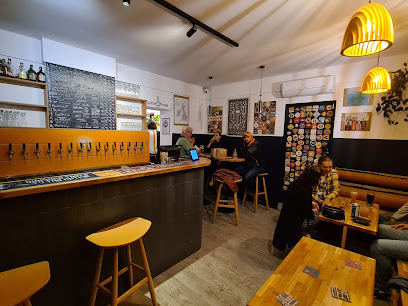
Insomnia
26.0 km
Experience the artistic culinary journey at Insomnia, a vibrant bistro in Cluj-Napoca featuring Indian cuisine, pizzas, and live jazz music.
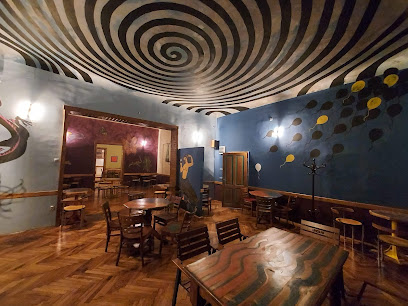
Studio 26
26.0 km
Experience the vibrant nightlife of Cluj-Napoca at Studio 26, where creative cocktails and a lively atmosphere await you.
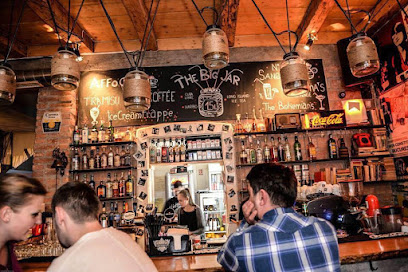
Che Guevara Social Pub
26.1 km
Discover the energetic ambiance of Che Guevara Social Pub in Cluj-Napoca, where great drinks and lively social interactions await you.
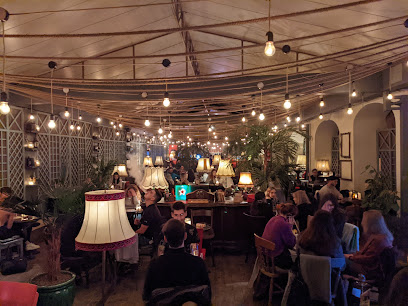
Zorki
26.1 km
Experience the vibrant nightlife at Zorki, Cluj-Napoca's beloved pub offering craft drinks and a lively atmosphere for social gatherings.
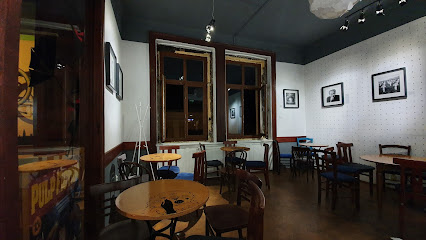
Booha Bar
26.1 km
Experience the lively atmosphere of Booha Bar in Cluj-Napoca, where coffee and cocktails create the perfect blend for relaxation and socializing.
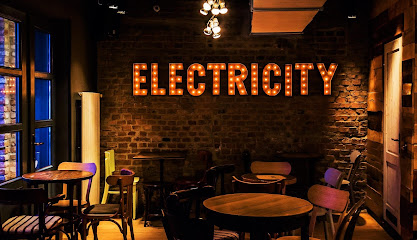
Coyote
26.1 km
Discover the vibrant nightlife at Coyote in Cluj-Napoca, where exquisite drinks and lively ambience create unforgettable experiences.
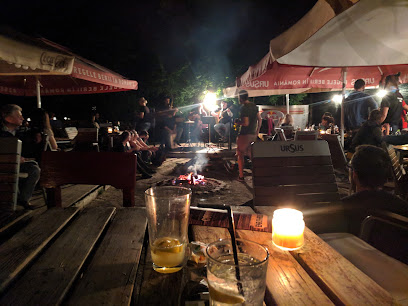
Nightclubs & after hour spots
Club NOA
24.7 km
Discover the ultimate nightlife experience at Club NOA in Cluj-Napoca, where vibrant music and stylish ambiance create unforgettable nights.

HiBRID
25.4 km
Discover the vibrant nightlife of Cluj-Napoca at HiBRID, where every night is a celebration filled with music, dance, and unforgettable memories.
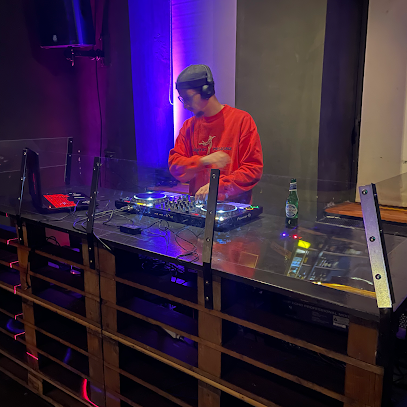
New My Way Dance-Pub
25.8 km
Discover the electrifying nightlife at New My Way Dance-Pub in Cluj-Napoca, where music, dance, and good company come together for an unforgettable experience.
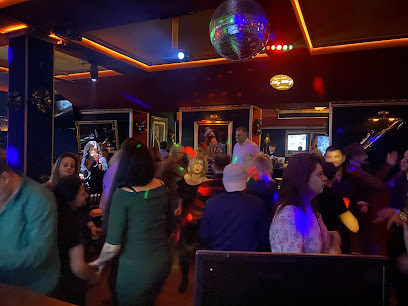
Sugar Club
26.0 km
Unleash your nightlife spirit at Sugar Club, Cluj-Napoca's ultimate destination for music, dancing, and vibrant entertainment.
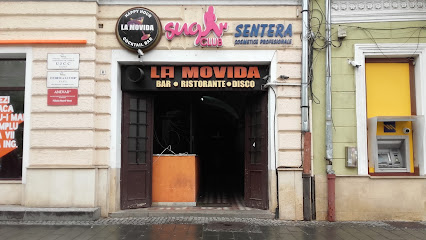
Revolution Club Cluj
26.2 km
Dive into Cluj-Napoca's nightlife at Revolution Club, where electrifying beats and vibrant energy create unforgettable experiences.
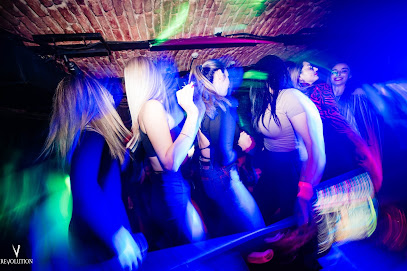
Flying Circus
26.3 km
Experience the vibrant nightlife of Cluj-Napoca at Flying Circus, where the music never stops and the energy is contagious.
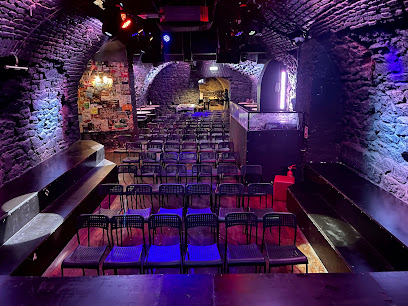
After Eight
26.3 km
Discover Cluj-Napoca's nightlife at After Eight, a dynamic night club where unforgettable music and energy meet in a stunning atmosphere.
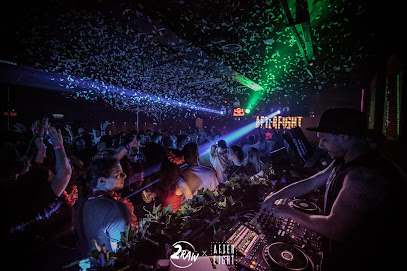
Euphoria Music Hall
26.3 km
Immerse yourself in the vibrant nightlife of Cluj-Napoca at Euphoria Music Hall, the ultimate disco experience with electrifying music and unforgettable parties.
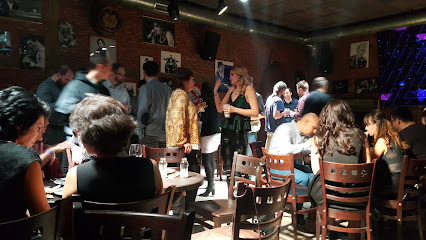
Bamboo
26.4 km
Experience the vibrant nightlife of Cluj-Napoca at Bamboo, where electrifying music and an energetic atmosphere create unforgettable nights.
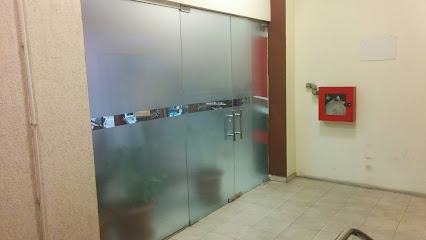
Vanity Gentlemen Club
26.4 km
Discover the ultimate nightlife experience at Vanity Gentlemen Club, Cluj-Napoca's premier destination for entertainment and vibrant atmosphere.
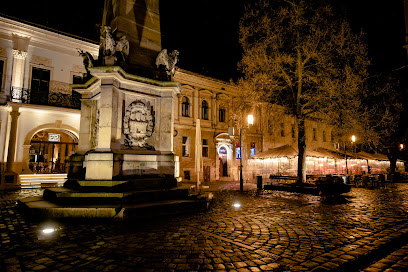
Eden Club
26.5 km
Experience the electrifying nightlife at Eden Club, Cluj-Napoca's premier destination for dance, music, and unforgettable memories.
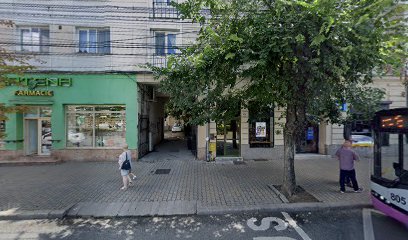
CIVICO QUATTRO
39.9 km
Experience the vibrant nightlife at CIVICO QUATTRO in Brăzești, Romania - an electrifying night club offering unforgettable music and atmosphere.

Illusion CocktailClub
47.0 km
Unleash your inner party animal at Illusion CocktailClub, Feisa's ultimate disco experience with stunning cocktails and vibrant beats.

Club Park Place
56.8 km
Discover the dynamic nightlife at Club Park Place in Bunești, where music, dancing, and vibrant energy create unforgettable nights.
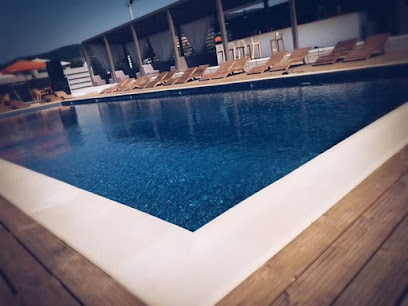
La Mătușa
57.0 km
Discover La Mătușa in Bucium, a cozy lounge offering a serene ambiance and delightful refreshments, perfect for unwinding after a day of exploration.
